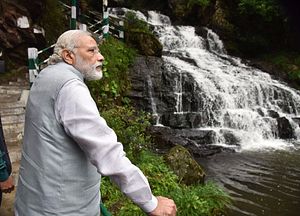Until Wednesday, India had no real way for non-ethnic Indians to acquire long-term residency in the country. That changed when Prime Minister Narendra Modi’s cabinet approved an “investor visa” scheme, allowing high net worth foreigners who have created a minimum of 20 jobs in the country and invested at least $1.5 million to qualify for Indian residency. The initiative mirrors similar visa regimes in the United States and other countries.
For India’s center-right Bharatiya Janata Party-led government, the new visa is another incentive for wealthy foreigners to invest directly in the country. The Modi government, since coming to office in May 2014, has liberalized restrictions on foreign direct investment in several strategic sectors, including defense. With the new visa, investors setting up shop in India can forgo business or employment-based visas and qualify for residency in the country.
The specific conditions of the new visa aren’t easy to meet and don’t confer residency with immediacy. Those investing $1.5 million or more must wait 18 months to win residency. An alternative, granting more flexibility in terms of the sum invested, is to invest at least $3.7 million in India over three years.
A statement posted by the Indian Prime Minister’s Office further adds that the foreign investment in India by the applicant “should result in generating employment to at least 20 resident Indians every financial year.” The PMO clarifies that the residency granted under the new initiative will last for “10 years initially,” but will be renewable for another 10 years.
The new residency status does have some limitations compared to other statuses afforded to non-citizen ethnic Indians. For instance, holders of the new residency status will be unable to purchase more than one piece of property. It remains unclear just how much demand exists for this type of a permanent residency status in India.
The approval of the new residency status by Modi’s cabinet came as the annual Strategic and Commercial Dialogue with the United States drew to a close. U.S. Secretary of State John Kerry and U.S. Commerce Secretary Penny Pritzker were in India to meet their Indian counterparts. The Indian side raised complaints with the United States regarding the cost of visas for skilled workers in the United States, alleging that the practice was directed at Indian companies. Pritzker said she would “look into” Indian complaints on the matter.

































